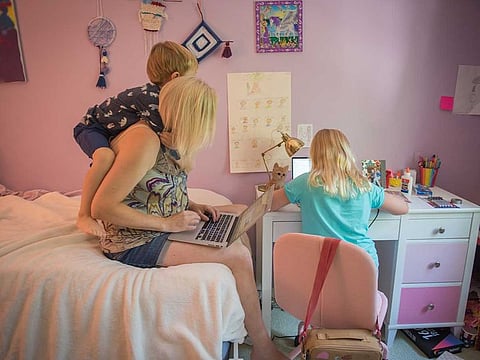Weekend feature: What COVID-19 has taught our children
Let’s reflect on our ability as humans to show resilience, adaptability and empathy

It’s undeniable that the COVID-19 pandemic has had a devastating effect on us all, and all around the world people are learning to adapt to seemingly ever-changing variants, conditions and rules.
One area that was badly affected by lockdowns and closures was the education sector. But at the start of a new year, with the latest variant appearing to be less threatening to health, it’s a good time to reflect on the lessons COVID-19 has taught our children, and maybe we can also take these lessons to ensure we all stay as healthy and safe as possible in future.
The importance of hygiene
Schools have always been acutely aware of transmissible disease, with a higher expectation of hygiene practices to help spread common illnesses like colds, flu and stomach bugs. But COVID-19 took this to a new level. During this pandemic, children have been taught at home, at school and through the media the importance of keeping their hands clean.
Studies show that people in developed nations generally don’t pay as much regard to handwashing and basic hygiene practices as those in the developing world. Until the last few years, that is. Now, the frequent handwashing message is a key practice we can all undertake to stem the spread – and an excellent habit to have - even without the dark cloud of COVID looming over us all.
Maintaining social relationships regardless of distance
We aim to teach our pupils to become truly global citizens. And in future, communication will be increasingly virtual, especially with the rise of the so-called ‘metaverse’.
The pandemic saw more people turn to online video chat to keep in touch with friends and family so much more than before, taking part in regular Zoom calls and checking up on each other.
Virtual communication has increasingly become the norm. Add in working from home and the ability to work completely online, remotely and independently – and the ‘forced’ change in the way most of us now communicate naturally will give students the right skillset to succeed beyond graduation in a hyper-connected world.
Increased empathy and gratitude
Children were able to display their emotional intelligence more during this time by showing their support for healthcare workers by, for example, drawing rainbows to display on their home windows.
While for many it was tough to comprehend and deal with the impact of the virus, as it became the norm, children showed great resilience and developed an increased ability to empathise with the situation.
Adaptability
The pandemic certainly created a lot of challenges, including how unpredictable day to day life became. All of us have had to become resilient and adaptable, both of which are valuable skills for our children in future. Children increasingly showed how they developed coping mechanisms to deal with an emerging, unknown situation.
Increased creativity
Bring stuck inside during lockdowns, isolation and quarantine, children had to find new ways to keep themselves entertained. And, in the process, they managed to discover new interests and hobbies. Many of these will transfer into lifelong hobbies, and help develop skills that will be useful in later life.
The importance of support systems
To get through this difficult time, everyone has had to lean on each other for support. With that, children learnt the importance of family and friends in difficult times. In many cases, family relationships have become stronger, as have friendships, as we shared information and leant on each other for support through the tough times.
Discovering their local environment
With travel being reduced drastically and even halted for long periods in the last two years, our walks in the park, the countryside or through much quieter city streets have brought opportunity. While undeniably hard, it has also allowed people to discover the place they live in in more detail - and for children to find new hobbies and places to see around them. And it’s certainly made us all appreciate the ability to travel with relative freedom under more normal circumstances.
Together, these learning aspects can be viewed as positives. As we move away from the most arduous moments of the pandemic, let’s reflect on our ability as humans to show resilience, adaptability and empathy – all useful life skills.
Eloise Briey is a writer at Swiss International Scientific School in Dubai


